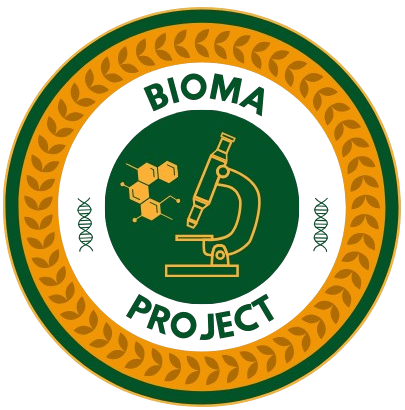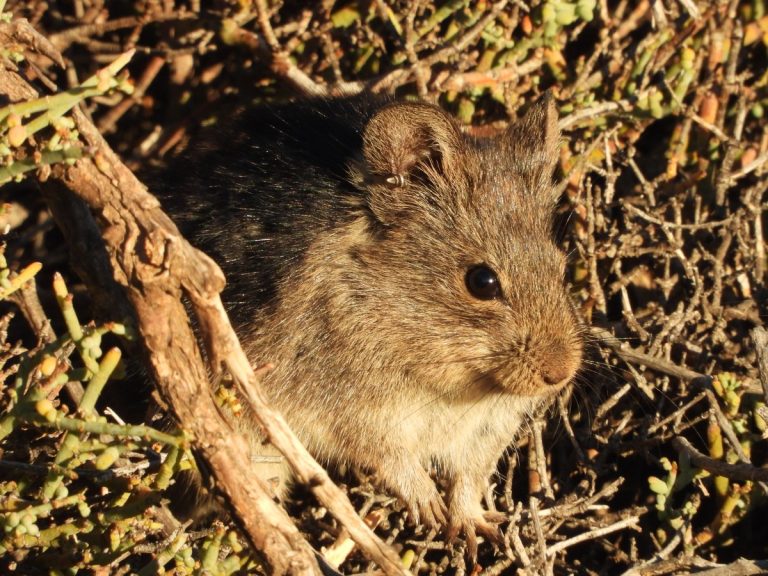In this series, we explore the unique experiences of field ecologists conducting research in remote field stations during the holiday season. Through personal stories and reflections, our contributors share what it’s like to conduct scientific work in remote, biodiverse environments, where the challenges of research intersect with the spirit of the holidays. From the solitude of secluded field stations to unexpected festive moments in the wild, this series highlights the resilience and dedication of ecologists and evolutionary biologists working in these remarkable regions of the world. Here, researchers from the Succulent Karoo Research Station, relay their field experiences in Namaqualand (South Africa), one of the only two desert regions recognised as a global biodiversity hotspot.
Post provided by Lindelani Makuya, Siyabonga Sangweni and Jingyu Qiu.
Shifting focus: studying solitary species and the unique challenges of remote fieldwork
To be alone does not equate to being lonely. For years, studies have focused on group living species and what makes them successful, with little to no attention being paid to more solitary living species. In our own field site, the group-living striped mouse dominated our research interests for over 20 years as the model species for studies on paternal care and adaptation to the harsh environment . With the onset of the Covid19 pandemic, a shift took place. The bush Karoo rat, a solitary rodent in the same environment, became the new center of attention. In the remoteness of Namaqualand, we now study the costs and benefits of solitary living in the bush Karoo rat. We conduct our research at the Succulent Karoo Research station (SKRS). Here, we monitor a population of bush Karoo rats (Otomys unisulcatus) as well as the striped mouse (Rhabdomys pumilio) and occasionally the round-eared elephant shrew (Macroscelides proboscideus) and whistling rat (Parotomys littledalei).

There are challenges that researchers face when conducting long-term studies in remote, desert-like areas. Not only can field conditions be extreme, but effectively monitoring a population also means that the research station should ideally be permanently staffed, including during the festive season. The main goal is always to know which rodents (individuals and species) are at the field site. This is achieved through continuous monitoring. Our usual working days are Monday to Tuesday and Thursday to Saturday, with Sunday and Wednesday as our off days. Our rodents are diurnal, which means the working day starts before sunrise, when we set up traps and follow up with focal animal observations at selected nests/lodges. The days can get very warm, so we don’t trap during the day; instead, we reset our traps just before sunset.
Holidays such as Easter tend to go unnoticed in the field. Christmas, on the other hand, can be more festive at the field site. Although I have never spent Christmas at the station, my colleagues Jingyu Qiu (a PhD student) and Siya Sangweni (the station manager and a Master’s student at the time) recall their experience of spending Christmas at the SKRS one December.
My first summer Christmas
Jinyu Qiu is a PhD student at the Institut Pluridisciplinaire Hubert Curien in Strasbourg, France. Her project focuses on the “Seasonality of Personality in Bush Karoo Rats (Otomys unisulcatus),” where she measures the personality of bush Karoo rats based on the time of year they were born (early vs. late-born).
This was her experience: “I spent Christmas of 2022 at the SKRS field station in the Goegap Nature Reserve, South Africa, with station manager Siyabonga Sangweni and research assistant Perfect Dlamini. It was a Saturday, which also happened to be our barbeque day, so during the day we carried out our routine trapping and experiments as usual. After sunset, we started the fire for a special Christmas Eve barbeque. We took out an old Christmas tree and decorated it with whatever we could find, adding a touch of creativity to the evening. Someone found a Christmas hat, and everyone contributed drinks. We sat around the fire, enjoying the warm summer night, wine, and food. It was the first time I experienced Christmas in the summertime, making it a truly unique and memorable celebration.”
The simplicity of Christmas
Siyabonga Sangweni is a former station manager and a Master’s student registered at the University of the Witwatersrand in Johannesburg, South Africa. His thesis focused on “The Function of ‘Plant Biltong’ Collected by Bush Karoo Rats (Otomys unisulcatus).” In this work, he investigated the fate of the plant species that bush Karoo rats carried back to their lodges from their foraging grounds.

He describes his experience as follows: “The festive season at the SKRS brought unique challenges and joys for field scientists like me, who chose to spend the holidays immersed in the ecosystems we studied. At the Succulent Karoo Research Station (SKRS) in Namaqualand, South Africa, the December holidays often blurred the lines between work and celebration. The station wasn’t just a workplace; it was a home away from home. I never imagined that one day I’d be working through the festive season, but this one stood out in a way I hadn’t expected. The peace and quiet of the landscape offered a rare chance to reflect on the year’s scientific pursuits, all while surrounded by one of the world’s most remarkable biodiversity hotspots.
While most people celebrated in bustling urban spaces, we at SKRS found ourselves immersed in the serene beauty of Namaqualand. The cheerful chatter of colleagues like Jingyu and Perfect, combined with the familiar rustle of wildlife—especially the noisy Cape sparrows next to the Wendy house and my morning alarm—created a festive atmosphere of its own. The season wasn’t about grand celebrations but about finding joy in the simplicity of our work and its meaning. From enduring the unforgiving heat of the Namaqualand summer to capturing glimpses of bush Karoo rats and African striped mice on camera traps, the experience reminded me of the dedication and resilience it took to conduct science in such conditions. It was a festive season like no other—one where the challenges of fieldwork merged seamlessly with the quiet wonder of nature. I will forever be grateful to the station for taking care of me during this time.”
Post edited by Sthandiwe Nomthandazo Kanyile
slot!, pernahkah mendengar semboyan “slot demo” jika tidak siap-siap? cinta program, slot demo jatuh adalah sama slots ini. sering kasih mesin kemenangan yang Yup slot-slot dikatakan. adalah, jagoannya ini bisa buat membawa come back hasil. tapi gimana caranya nemuin, raja lot sih tepat Tenang Bro and Sis yang beri? saja di sini, kita beri {santai|tenang] saja di sini



